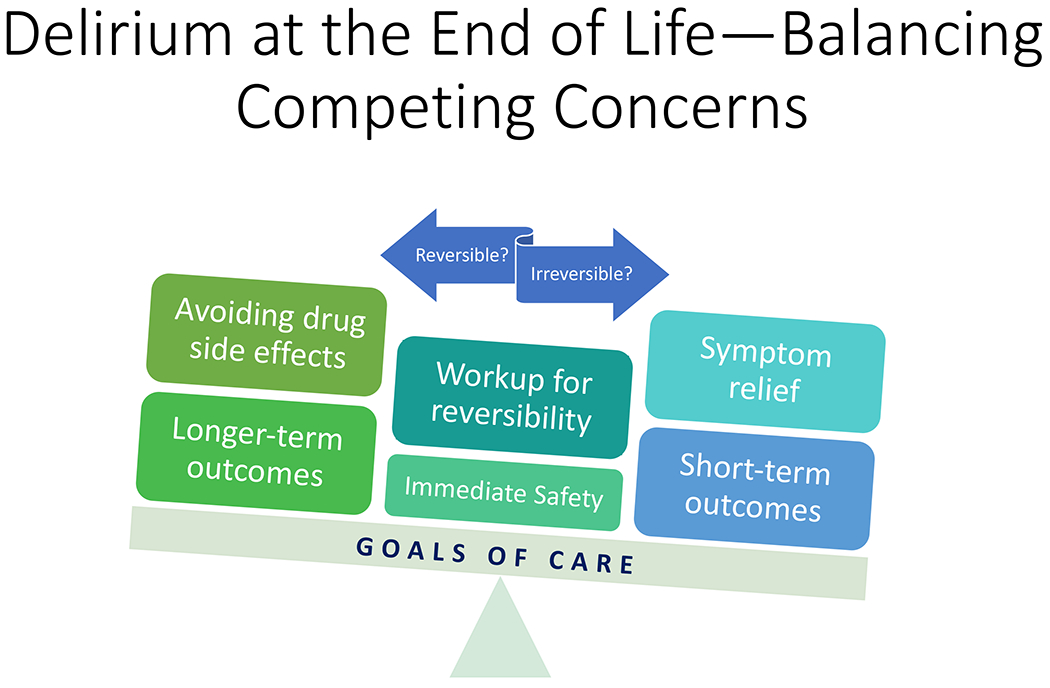Figure 1.

Competing concerns in the management of older patients with delirium at the end of life prompt the need for ethical approaches to aid clinicians as they navigate treatment decisions. Ensuring immediate safety and assessing for reversible causes are important considerations in all cases. Clinicians need to balance other concerns depending on the the patient’s goals of care and the potential reversibility of the delirium: avoiding drug side effects and prioritizing longer-term outcomes often compete against symptom relief and short-term outcomes.
